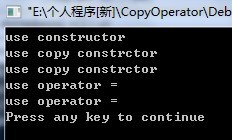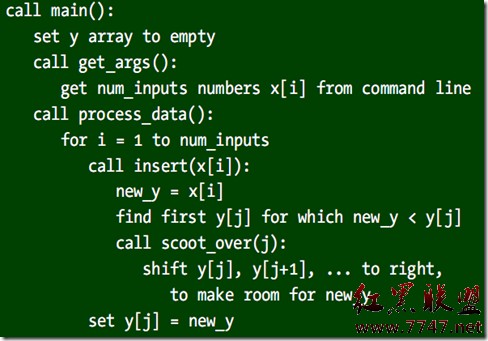poj1036-dp
题目分析:
由题目很容易就能想到这道题目是DP题目。
当然,它的DP方程也不难得到:
定义状态:d[i,j] 表示在时间t=i且门状态为j的时候所能取得的最大幸运值。
那么相应的状态转移方程为
d[i,j] =max(d[i-1,j-1],d[i-1,j],d[i-1][j+1])+p
如果在i时刻有坚毅度为j的混混k出现,则p=Sk,否则,p=0
由此可得该题的状态数目为O(T*K),决策数目为O(1)
总的时间复杂度为O(T*K),空间复杂度为O(T*K)。
似乎题目到此就能解题成功了,但是并非如此。
可以看到题目中Memory Limit: 10000K,这样的空间来装一个T*K即30000*100的整型数组肯定会超空间,那么该怎么办呢?
聪明的你应该能想到“离散化”(wy的专业术语,在此借用一下)。对,注意到混混的人数为1<=N<=100,T*K这么大的空间根本就没有必要开,我们只需要对混混来的时间排一下序,然后依次编号,就可以把空间减小为N*K。
至此,我们的DP方程稍稍改变一下:
定义状态:d[i,j] 表示在第i号时间且门状态为j的时候所能取得的最大幸运值。
那么相应的状态转移方程为
d[i,j] = max(d[i-1,k])+p,
其中j-interval(i-1,i)<= k <= j+interval(i-1,i),
interval(i-1,i)表示第i-1号时间到第i号时间的间隙
如果在i时刻有坚毅度为j的混混k出现,则p=Sk,否则,p=0
通过这样的压缩,我们把空间复杂度减为了O(N*K)。
于是这样一道题目就被解决了。
#include<iostream>
#include<cstdio>
#include<cstring>
#include<cmath>
#include<algorithm>
#include<bitset>
#include<iomanip>
using namespace std;
#define MAX 110
#define MAXK 1110
#define MAXT 11110
struct node
{
int time , pros , stout ;
}a[ MAX ] ;
bool cmp( node a , node b )
{
return a.time < b.time ;
}
int main()
{
int dp[ MAX ][ MAXK ] , timetable[ MAX ] ;
bool get[ MAX ][ MAXK ] ;
int i,j,count,count0,time_num,time,p,d,res;
int n , k , t , hh;
scanf( "%d%d%d" , &n , &k , &t ) ;
for( int i = 0 ; i < n ; ++i )
scanf( "%d" , &a[ i ].time ) ;
for( int i = 0 ; i < n ; ++i )
scanf( "%d" , &a[ i ].pros ) ;
for( int i = 0 ; i < n ; ++i )
scanf( "%d" , &a[ i ].stout ) ;
sort( a , a + n , cmp ) ;
memset( get , false , sizeof( get ) ) ;
timetable[ time_num = 0 ] = 0 ;
for( i = 0 ; i < n ; ++i )
if( a[ i ].time != timetable[ time_num ] )
timetable[ ++time_num ] = a [ i ].time ;
get[ 0 ][ 0 ] = true ;
count = 0 ;
hh = 0 ;
while( count < time_num )
{
time = timetable[ count ] ;
while( hh < n && a[ hh ].time == time )
{
if( get[ count ][ a[ hh ].stout ] )
dp[ count ][ a[ hh ].stout ] += a[ hh ].pros ;
hh++ ;
}
count0 = count + 1 ;
d = timetable[ count0 ] - time ;
for( j = 0 ; j < k + 1; ++j )
if( get[ count ][ j ] )
for( p = max( j - d , 0 ) ; p <= min( j + d , k ) ; ++p )
{
if( dp[ count0 ][ p ] < dp[ count ][ j ] )
dp[ count0 ][ p ] = dp[ count ][ j ] ;
get[ count0 ][ p ] = true ;
}
count ++ ;
}
time = timetable[ count ] ;
for( i = 0 ; i < n && a[ i ].time <= time ; ++i )
if( a[ i ].time == time )
if( get[ count ][ a[ i ].stout ] )
dp[ count ][ a[ i ].stout ] += a[ i ].pros ;
res = 0 ;
for( i = 0 ; i < k + 1 ; ++i )
if( dp[ count ][ i ] > res )
res = dp[ count ][ i ] ;
printf( "%d\n" , res ) ;
return 0 ;
}
#include<iostream>
#include<cstdio>
#include<cstring>
#include<cmath>
#include<algorithm>
#include<bitset>
#include<iomanip>
using namespace std;
#define MAX 110
#define MAXK 1110
#define MAXT 11110
struct node
{
int time , pros , stout ;
}a[ MAX ] ;
bool cmp( node a , node b )
{
return a.time < b.time ;
}
int main()
{
int dp[ MAX ][ MAXK ] , timetable[ MAX ] ;
bool get[ MAX ][ MAXK ] ;
int i,j,count,count0,time_num,time,p,d,res;
int n , k , t , hh;
scanf( "%d%d%d" , &n , &k , &t ) ;
for( int i = 0 ; i < n ; ++i )
scanf( "%d" , &a[ i ].time ) ;
for( int i = 0 ; i < n ; ++i )
scanf( "%d" , &a[ i ].pros ) ;
for( int i = 0 ; i < n ; ++i )
scanf( "%d" , &a[ i ].stout ) ;
sort( a , a + n , cmp ) ;
memset( get , false , sizeof( get ) ) ;
timetable[ time_num = 0 ] = 0 ;
for( i = 0 ; i < n ; ++i )
if( a[ i ].time != timetable[ time_num ] )
timetable[ ++time_num ] = a [ i ].time ;
get[ 0 ][ 0 ] = true ;
count = 0 ;
hh = 0 ;
while( count < time_num )
{
time = timetable[ count ] ;
while( hh < n && a[ hh ].time == time )
{
if( get[ count ][ a[ hh ].stout ] )
dp[ count ][ a[ hh ].stout ] += a[ hh ].pros ;
hh++ ;
}
count0 = count + 1 ;
d = timetable[ count0 ] - time ;
for( j = 0 ; j < k + 1; ++j )
if( get[ count ][ j ] )
for( p = max( j - d , 0 ) ; p <= min( j + d , k ) ; ++p )
{
if( dp[ count0 ][ p ] < dp[ count ][ j ] )
dp[ count0 ][ p ] = dp[ count ][ j ] ;
get[ count0 ][ p ] = true ;
}
count ++ ;
}
time = timetable[ count ] ;
for( i = 0 ; i < n && a[ i ].time <= time ; ++i )
if( a[ i ].time == time )
if( get[ count ][ a[ i ].stout ] )
dp[ count ][ a[ i ].stout ] += a[ i ].pros ;
res = 0 ;
for( i = 0 ; i < k + 1 ; ++i )
if( dp[ count ][ i ] > res )
res = dp[ count ][ i ] ;
printf( "%d\n" , res ) ;
return 0 ;
}
补充:软件开发 , C++ ,




